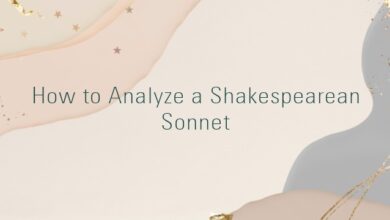
William Shakespeare – Sonnet 126
O thou, my lovely boy, who in thy power
Dost hold Time’s fickle glass, his sickle, hour;
Who hast by waning grown, and therein showest
Thy lovers withering, as thy sweet self growest.
If Nature, sovereign mistress over wrack,
As thou goest onwards still will pluck thee back,
She keeps thee to this purpose, that her skill
May time disgrace and wretched minutes kill.
Yet fear her, O thou minion of her pleasure!
She may detain, but not still keep, her treasure:
Her audit (though delayed) answered must be,
And her quietus is to render thee.
( )
( )
Dante Gabriel Rosetti wrote in 1882 “There should be an essential reform in the printing of Shakespeare’s sonnets. After sonnet CXXV should occur the words End of Part I. The couplet piece, numbered CXXVI, should be called Epilogue to Part I. Then, before CXXVII, should be printed Part II. After CLII should be put End of Part II – and the last two sonnets should be called Epilogue to Part II.”
A Renaissance reader would perhaps be expected to discover these points by an attentive reading of the sonnets, and by knowing what to look for within the conventions of sonneteering. It is in fact generally agreed nowadays that this is a farewell sonnet, and that it brings to a close the main group of sonnets addressed to the fair youth. It does not follow the pattern of the other sonnets, being a series of six rhyming couplets, although it still gives the overall impression of being constructed in quatrains, and of having a concluding couplet. The reason for the bracketed blank lines in the original publication is not known, but some suggestions are discussed in the notes below.
The poet addresses the youth in loving terms and surveys the years of his growing older. It appears that his ageing has augmented his own beauty, and by doing so it has also emphasised the deterioration and decay of his admirers. Nature has been in love with him and has sequestered him away from the ravages of time. Yet she cannot do so forever, and soon must yield him up and give an account of how she has used her treasure. The settling of the account is perhaps something to be dreaded, and the poet is solicitous for his beloved.
Echoing down the centuries there is in these lines what Wordsworth called
The still, sad music of humanity,
Nor harsh nor grating, though of ample powerTo chasten and subdue. Tintern 91-3.
They seem to express not so much a tiredness of love, as a fond farewell, a willingness to look back and see how much the heart has aged and how much it has learned from its experiences. It realises that it can no longer be moved by the same depth of passion, but it can be grateful that the chance was given it to love and to drink to the full the cup that was offered at the love feast. The mysteries of love remain, and will always remain, but Cupid for a while lays aside his arrows, and the love God sleeps.
The 1609 Quarto Version
OThou my louely Boy who in thy power,
Doeſt hould times fickle glaſſe,his ſickle,hower:
Who haſt by wayning growne,and therein ſhou’ſt,
Thy louers withering,as thy ſweet ſelfe grow’ſt.
If Nature(ſoueraine miſteres ouer wrack)
As thou goeſt onwards ſtill will plucke thee backe,
She keepes thee to this purpoſe,that her ſkill.
May time diſgrace,and wretched mynuit kill.
Yet feare her O thou minnion of her pleaſure,
She may detaine,but not ſtill keepe her treſure!
Her Audite(though delayd)anſwer’d muſt be,
And her Quietus is to render thee.
( )
( )
Commentary
1. O thou, my lovely boy, who in thy powermy lovely boy – Some commentators have objected to this phrase and found it too mawkish. At least one book has been written on the supposition that it can only be addressed to a very young boy, probably the son of the Earl of Pembroke, the father being one of the candidates for the title of the beautiful youth. All such objections are obviously misplaced, as it is well known that the language used by lovers often resembles that of the fondest exchanges between parent and child. Besides, the speaker has only just declared that his love is not mixed with seconds, knows no art, so it is no surprise to find him addressing the youth in the most artless way, using no similes or metaphors, but simply the unvarnished words. Love and loveliness has been the enduring theme of the sonnets to the youth, so it is fitting that they should end in this way, with loving care and devotion.2. Dost hold Time’s fickle glass, his sickle, hour;
Time’s fickle glass = Time’s treacherous mirror, (which always shows a person’s face at the present time, but never shows what changes have occurred). This meaning is prompted by the frequent use of glass, (equivalent to mirror), in the Sonnets, starting with Sonn.3:
Look in thy glass, and tell the face thou viewest
Now is the time that face should form another;
There are 10 uses of glass, including this one. In eight of them, the meaning is unequivocally ‘mirror’; in one, Sonn.5, it has the modern meaning. One is therefore almost compelled to assume that here the predominant meaning must be ‘mirror’. Many editors think that the reference is mainly to an hourglass. This would be untrustworthy also, in that the individual never knows what the next hour will bring, and when the hour of death is at hand. In Durer’s engraving above Death is shown holding an hourglass. Probably both meanings are intended.
his sickle, hour – Time was frequently depicted bearing a scythe (a large version of a sickle, and an hourglass). Some editors read sickle-hour, i.e. the hour in which wheat was ripe for the sickle, hence the hour of mortality, the hour of death. The line is difficult because it is not entirely clear how the boy holds time in his power, since throughout the sonnets the opposite has been feared. hold may be interpreted as ‘holding back, restraining’, and the youth may paradoxically be seen as defying time by remaining beautiful in the lover’s eyes, and beautiful in himself. This meaning is reinforced by the subsequent explanation that Nature has granted him the privilege of being plucked away from the jaws of destruction. But this privilege will not last forever.3. Who hast by waning grown, and therein showestWho hast by waning grown – In the sense that growth is also a form of decay, a hastening onwards to old age, it may also be described as waning. His youth wanes as he ripens to maturity. As in Sonn.60:
Nativity, once in the main of light,
Crawls to maturity, wherewith being crowned,
Crooked eclipses ‘gainst his glory fight,
And Time that gave doth now his gift confound.
The word waning is usually applied to the moon and the moon’s phases, a suggestion which is probably relevant here, because of the reminiscences of the harvest moon, shaped like a sickle in the autumn sky.
therein = by doing this, by waning and growing. As his beauty increases it shows by contrast the decrepitude of his lovers.4. Thy lovers withering, as thy sweet self growest.lovers – see the note on this word by SB, pp.431-2 . In Shakespeare’s day lover could mean simply friend, admirer, or an acquaintance who looked upon one with favourable intent. But it also could have a similar range of meanings, often with implicit sexual overtones, as in the modern sense, when two people are referred to as lovers. The language of the Sonnets is often fraught with double meanings and it never allows a commentator to declare with certainty that the relationship between lover and beloved was or was not a sexual one. The use of the word lovers here is no exception.5. If Nature, sovereign mistress over wrack,Nature – Nature here steps in as the champion against Time, and as having sovereign power over it. There are 16 uses of the word in the Sonnets, where it roughly means ‘the sovereign power that creates all things’, as here, or, comparably, in The Winter’s Tale:
For I have heard it said,
There is an art that in their piedness shares
With great creating Nature WT.IV.4.86-8.
In the pantheon of pagan deities Nature would be placed somewhere near the top, as having power over all created things. However she does not reverse Time’s processes, but merely decides when they are to act. Thus she is ‘sovereign mistress over wrack (= ruin)’ in that she determines the moment when destruction falls. The sentence is in any case conditional, implying that ‘If Nature appears to be pulling you back from ruin, it is only because she has an ulterior motive for the time being. She cannot save you forever’.6. As thou goest onwards still will pluck thee back,still = always, ever, continually. The word may be taken both with that which precedes and that which follows. Thus ‘as you ever hasten forwards’ and ‘she (Nature) will always pull you back from the brink’. The construction also allows the meaning, ‘as you go forward, yet she will still manage to etc.’7. She keeps thee to this purpose, that her skillkeeps thee = detains you, keeps you as her possession, holds you back, preserves you.
to this purpose = with this intent, for this reason.
that = in order that.
her skill – i.e. Nature’s skill and excellence in creating and managing the beauties of creation.8. May time disgrace and wretched minutes kill.May time disgrace – Nature’s skill in preserving the youth and his beauty will disgrace Time which is only intent on destroying him.
minutes – Q gives the singular mynuit which has encouraged commentators to see a connection with the French minuit, or midnight, which was often feared as the hour of death. The emendation to minutes is therefore not generally accepted. The reason I have retained it is that ‘and wretched minute kill ‘ sounds so ungrammatical that its sense jars against the otherwise smooth running of the poem. With or without the emendation, the meaning of the line is not obvious. Presumably it implies that, if the youth is saved by nature from destruction, then time is not operative, and wretched minutes are of no account, they have effectively been killed.9. Yet fear her, O thou minion of her pleasure!her = Nature.
minion = plaything, darling; servant.10. She may detain, but not still keep, her treasure:detain = hold back (from time’s ravages), preserve by keeping in a safe place.
still = always, forever.11. Her audit (though delayed) answered must be,Her audit = Nature’s presentation of her accounts. The word audite, from the Latin, means literally ‘hear ye’, a summons used to a person to give an account of themselves. It was often used in a theological sense, referring to the account one must give of oneself to God. Also used in connection with the Last Judgement. OED 3 gives the following example: 1606 Dekker Sev. Sins i. (Arb.) 15 Those heapes of Siluer…will be a passing bell…calling thee to a fearefull Audit.
Strictly speaking the sense of these lines is that Nature must render an audit of her action in holding back the youth from Time’s clutches, and give a profit and loss statement of the same. But it is impossible not to read them also as a warning to the youth that he must settle his own accounts with God and Nature. Has he used his time profitably, or has he not been merely frivolous and inconsiderate, for which he might ultimately have to pay a heavy price?12. And her quietus is to render thee.quietus = sanctioning of accounts. Debts that were paid in full had the words Quietus est written on them, meaning ‘It is settled.’ Nature makes the same stipulation with the human race, that, having made the loan of life, the debt must be paid to her in full (presumably by dying). Nature here must settle her account with Time.
is to render thee = is achieved by sacrificing you. Or perhaps ‘is yet to be presented to you’. There is probably a conflation of ideas here, that Nature must render an account to Time for having borrowed the youth, and that the youth must settle his account with Nature, having profited from her generosity. On Nature’s balance sheet would be written the worth of the youth, and whether the care expended on him had been worth the price, and if he had repaid the debt. Only when fully repaid could Time write upon it Quietus est. With regard to the account supplied to the youth there is an obvious reference to the common phrase of ‘paying one’s debt to nature’, i.e. dying. The word render is used in the Sonnets only here and in the previous sonnet, in the same line, so that the mutual render, only me for thee, (125 line 12), becomes here almost a brutal sacrifice, a giving up of the youth to the necessity of Time. Quietus also has the suggestion of ‘quietness, peace’ as for example in Hamlet’s famous lines
For who would bear the whips and scorns of Time,
……………………….
When he himself might his quietus make
With a bare bodkin Ham.III.1.70, 74-5.
where the quietus also contains the sense of peace and rest after a long travail. Therefore there is an implication here that Nature can perhaps find peace by getting rid of the burden of this unruly child, the fair youth, who has perhaps not justified the outlay expended upon him. However it would be too churlish to insist on these possible derogatory meanings, since the tone of the poem is, if anything, tender, loving and solicitous. Compare also:
‘Lastly, to end him; he cares not when his end comes, he needs not fear his audit, for his quietus is in heaven’.
Sir Thomas Overbury, Characters, A Franklin. 1614-16.
The use of audit and quietus suggests that, in literary parlance, they were generally used to indicate a summing up of one’s life and a settling of the accounts before God and before one’s conscience.13. ( )Opinions differ as to the significance of the two bracketed empty lines at the end of this sonnet. It has been suggested that Thomas Thorpe the publisher excluded the lines as they might have given too direct a reference to the identity of the fair youth. Another suggestion is that since the couplet should by rights begin with ‘No!’ to match the pattern of the previous sonnets, the only fitting negative for the closing lines of this farewell sonnet are ones which do not rely on words. For words detract from the purity of love.
Or the blanks enclosed by brackets might suggest the shape of an hour glass, which will consume the youth’s hours. Or their emptiness might indicate a gaping grave. At any rate the shortness of the sonnet and the closing two lines do give a sense of incompleteness, suggesting that it might have been impossible to finish the sequence, and that perhaps their love was unending.14. ( )
Perhaps, rather than the silence of the grave, which Hamlet’s final words The rest is silence convey, we should look for a parallel in Prospero’s loving farewell to Ariel in the Tempest, (V.I.316-8) a farewell which elicits no reply, for Ariel flies off to join the fiery elements to which he belongs, and Prospero realises that he can no longer hold him.
My Ariel, chick,
That is thy charge. Then to the elements
Be free, and fare thou well!






